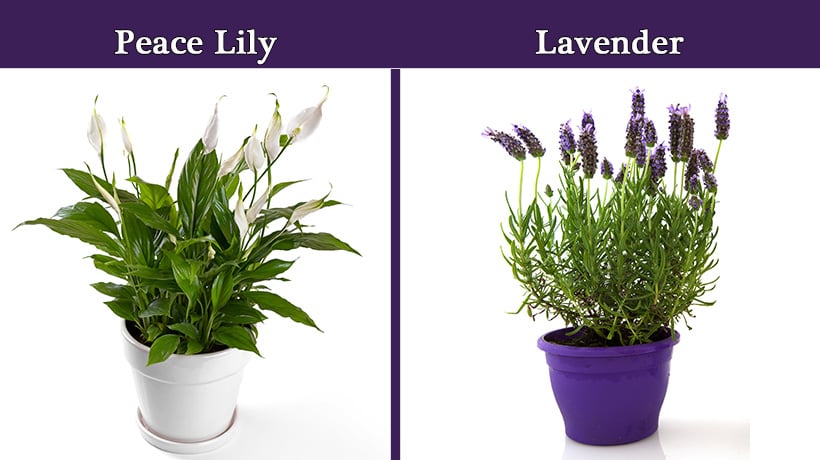If you’re like many people struggling with anxiety in the face of the changing world around us, you’re likely eager to find a solution to the discomfort by any means necessary. You can read all the anti-anxiety advice in the world, but none of this matters unless you take action. Natural remedies tend to be the safest route to helping anxiety without causing a host of other problems, including a dependency.
While there are a variety of natural remedies, one of the most unexpected but effective methods is to put plants in your bedroom to feel more relaxed, to sleep soundly at night, and to put energy into what matters. You can use these 10 plants to best reduce stress and anxiety.
Lavender
According to a 2013 study in the journal Evidence-Based Complementary and Alternative Medicine, a handful of single-blind randomized studies have examined the use of lavender aromatherapy and sleep quality. These studies found that the plant improved the mean scores of sleep quality in 15 healthy students, 64 ischemic heart disease patients, and 34 middle-aged women with insomnia.
Jasmine
Jasmine also works by decreasing your anxiety. It is also known to improve people’s mood and attitude after they get up.
Aloe vera
Aloe vera is a popular plant with a variety of medicinal properties, so it should come as no surprise that it is effective at calming the body. It has even been shown to have some sedative and hypnotic effects in rats.
Valerian
This flower has dried rhizome and roots that are sometimes used in supplements. A study in the journal Chemical Senses discovered that the inhalation of valerian (when the plant is used as an odorant) could help people with insomnia sleep. People who inhaled that plant’s scent slept longer and better.
Gardenia
The large and white flowers that come in the form of many, many petal roses, as well as the dark green, glossy leaves – all make gardenia a piece of art for your bedroom. One analysis published by the U.S. National Library of Medicine National Institutes of Health found that gardenia flowers are great natural alternatives to sleeping pills like Valium.
English ivy
This flower reduces airborne fecal matter, as well as absorbs formaldehyde and other airborne toxins. This is especially helpful if you live with a pet. The climbing plant also can thrive in low light conditions and low temperature environments.
Peace lily
Peace lilies, also referred to as Spathiphyllum varieties, make wonderful bed-side companions. An article completed for the Plants and Environmental Quality Group discovered that peace lilies could remove toxins in the air. These plants thrive in semi-shade to shade, and release moisture into the air.
Snake plant
This plant can thrive inside and outside of the home. An article that was done by Japanese researchers for the Food and Agriculture Organization of the United Nations found that the snake plant is able to absorb multiple hazardous chemicals, leaving indoor spaces cleaner. At night, the flower will emit oxygen and improve your sleep, whilst removing benzene, formaldehyde, toluene, as-xylene, and other harmful chemicals.
Golden pothos
These low-maintenance bedroom plants are another great choice for purifying the air, particularly for removing carbon monoxide and formaldehyde. Golden pothos plants are one of the top air-purifying plants from the NASA clean air study.
Gerbera daisies
Similar to many of the plants on this list, the Gerbera Daisy emits oxygen through the night and helps people sleep and breathe that much better. These particular daisies are better suited for those with green thumbs who have the time to give them close tender loving care.
Sources:
https://www.tuck.com/10-plants-that-help-sleep/
https://www.proflowers.com/blog/plants-that-help-you-sleep
https://www.naturallivingideas.com/12-plants-for-your-bedroom-to-help-you-sleep/



